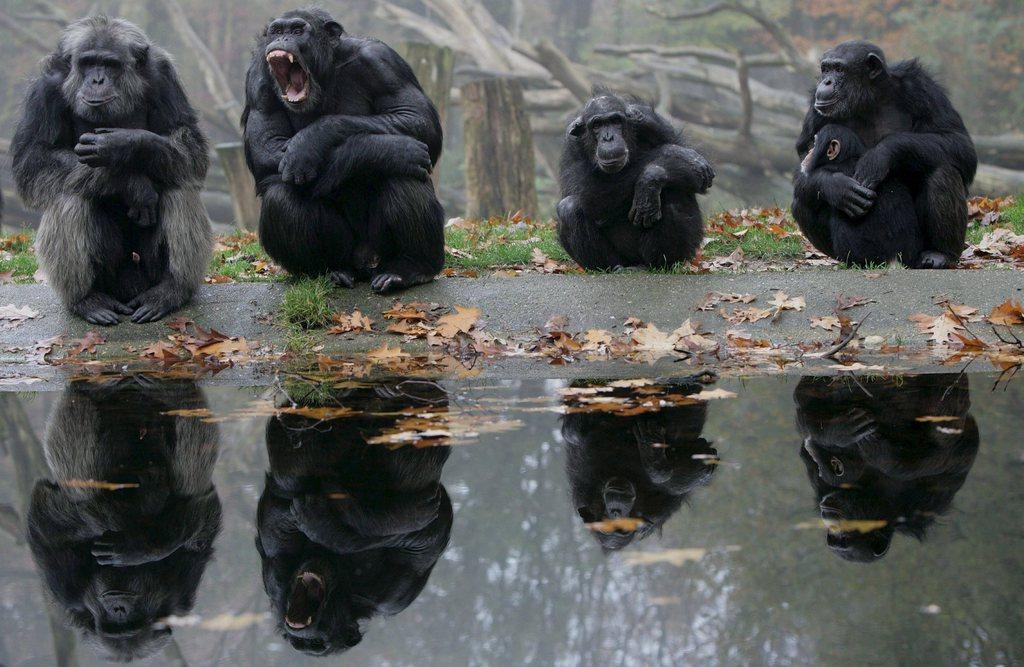Lethal violence brings chimps evolutionary perks

Chimpanzees kill each other because it has evolutionary benefits – not because of human influence on their food or habitat.
An international team of scientists, co-led by Klaus Zuberbühler from the University of Neuchâtel, looked at 18 groups of chimpanzees and bonobos which had been studied for research purposes for more than 50 years.
In this time, only one bonobo was killed by a fellow bonobo, whereas 152 chimpanzees were killed in 15 different groups.
The researchers, whose findings have been published in the latest edition of scientific journal Nature, found no connection between the murder rate and any human influence. The number of deaths increased along with the size of the group, also in groups with a large proportion of males.
Most fatal attacks (92%) were committed by males on males of neighbouring groups. Victims were male 73% of the time.
This is clearly a case of adaptive behaviour, according to the scientists. The apes are trying to improve their access to resources such as food or females by getting rid of any competition.
They rejected an alternative hypothesis – that lethal aggression was caused by being fed by humans or by having their habitat destroyed by humans.
Zuberbühler said the roughly 30 observed murders among chimpanzees a year out of a population of 100,000 “more or less corresponds to the rate among humans”. For example, this was the murder rate in Colombia in 2012.
Zuberbühler said the difference in the murder rate between chimpanzees and bonobos could be explained by the fact that female bonobos build alliances which the males are afraid to attack. This leads to a system that is more stable and less violent.
Evolutionary roots
The researchers pointed out that this study into the behaviour of our closest relatives shows that there is also a lot of aggression in the non-human animal kingdom and that this has deep biological and evolutionary roots.
“The data show that there are ecological and demographic circumstances in which the use of lethal violence exceeds the costs for chimpanzees,” said Joan Silk, an evolutionary biologist at Arizona State University in an accompanying commentary in Nature.
This does not mean, she added, that humans are predetermined to be as violent as chimpanzees just because chimpanzees occasionally kill their neighbours.

In compliance with the JTI standards
More: SWI swissinfo.ch certified by the Journalism Trust Initiative



You can find an overview of ongoing debates with our journalists here. Please join us!
If you want to start a conversation about a topic raised in this article or want to report factual errors, email us at english@swissinfo.ch.